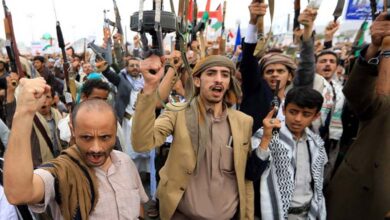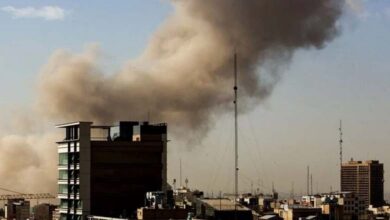Will the launch of a new political alliance in Sudan abort the course of the framework agreement?

While the final phase of the political process is expected to lead to a final agreement between the Sudanese parties in the coming phase, about 21 political and social blocs, Sufi roads, civil administrations, and resistance committees in Sudan signed, Wednesday, a new political declaration under the name of the “Coalition of the Revolutionary Democratic Forces of Reconciliation.”
The signatories demanded “federal rule, the implementation of the Juba Peace Agreement, the establishment of the values of tolerance and the values of freedom, peace and justice, and work to strengthen the common denominators among Sudanese,” the state news agency SUNA reported.
The Freedom and Change Coalition, the Central Council, is concerned about attempts by supporters of the regime of Omar Al-Bashir to obscure the political framework agreement signed between the military and civilians last December 5.
This comes after a rapprochement between the two sides of the Coalition of the Forces of Freedom and Change, the Central Council, and the Democratic Bloc to reach understandings on the basis of the political framework agreement to resolve the political crisis in the country.
The Democratic Revolutionary Accord Forces Alliance “aims to preserve Sudan, develop its people, pay attention to the sectors of farmers, craftsmen and scientists, and care for youth and women,” said Yasin Abul Nabi, secretary-general of the Democratic Revolutionary Accord Forces. The alliance includes demand-driven movements, including farmers and craftsmen, he said.
The Forces for Freedom and Change reject the request of NTC member Shamseddine Kabashi, who advocates expanding the parties to the framework agreement, noting that the armed forces “cannot protect a constitution drafted by 10 individuals,” in reference to civilian representatives of the framework.
Abdul Rahim Abdullah, political secretary of the new alliance, said, “The declaration was imposed by the political scene, which requires wisdom.” “The country is going through a dangerous stage that requires compromise and an attempt to take the country to safety by forming a strong government that will preserve the homeland,” he said.
Gen. Mohamed Hamdan Dagalo, deputy chairman of the Transitional Sovereignty Council and commander of the Rapid Support Forces, said the agreement is a basis for resolving the country’s political crisis. “There is no backing away from the agreement at all,” he said.
The troika and the Quartet, along with the Tripartite Mechanism (UN, AU, IGAD), support the Sudan Crisis Resolution Framework Agreement and have issued a warning not to compromise or attempt to undermine the Framework Political Agreement.
Sudan is undergoing a fragile transition following the dissolution of the government and the imposition of a state of emergency by the Chairman of the Transitional Sovereign Council, Lieutenant General Abdul Fattah al-Burhan, on 25 October 2021.











